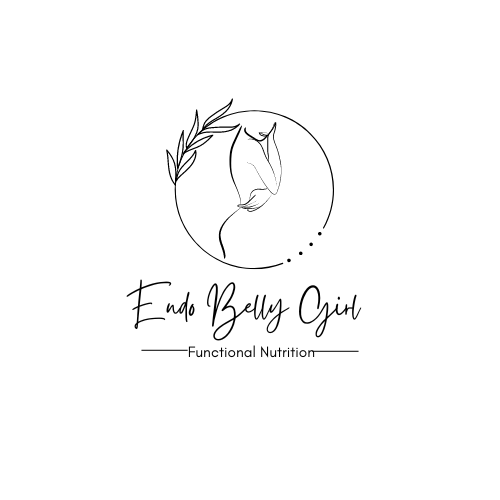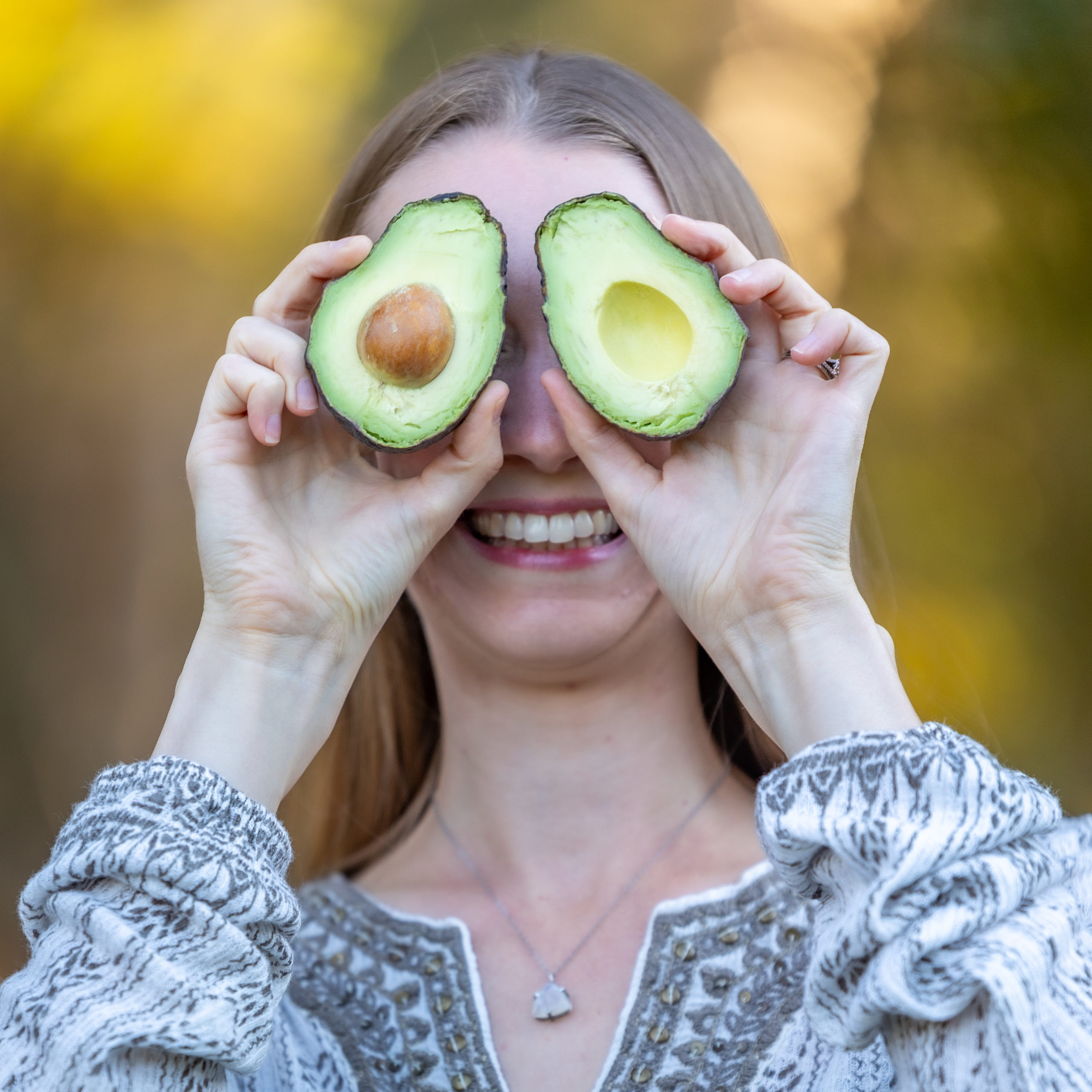Period pain is something that has become so normalized in our society. I remember as a teenage girl when I started having severe period pain and even nausea that it felt like I was generally brushed off by society because it is just “part of being a woman.” So honestly when I have women coming to me asking me, “why are my periods so painful?” I am happy to see that it is finally something that is being questioned.
What should a normal period look like?
A wonderful first step towards having pain free periods is to understand what a normal period should actually look like.
I took health class in school like so many of us and thought that I had a good understanding of what a menstrual cycle is and what to expect. I have since learned that that class gave me some false expectations. Plus it just barely scratched the surface of the knowledge that we all really should have in order to make informed decisions about our bodies.
Let me start by painting the picture of what a normal, healthy menstrual cycle should look like. A normal menstrual cycle lasts between 25-35 days. Your period should last between 3-7 days. During your period the total blood loss should be between 30-60ml or 6-12 fully soaked tampons. The blood should be bright red with minimal to no clots.
And…drumroll please…should come with minimal discomfort, pain, or mood or energy shifts.
If you are reading this and your experience has been very different, you may still be wondering, “why are my periods so painful?”
Cultural norms around periods
Part of the confusion when it comes to period health is the fact that much of our education comes from cultural norms.
When I start to talk about period pain, heavy periods, or mood or energy shifts around your period, it seems like most women can relate. I have endometriosis myself, which is associated with extremely painful periods. And yet it took me many, many years to receive a diagnosis (as is true of so many others) in part because the women around me sympathized with me, yet normalized my pain.
Periods are just painful…right?
When your mother, grandmother, aunt, sister, cousin, and best friend all say their periods are painful too, it almost makes you feel a little crazy for wanting to investigate further. Or even to trust your intuition that something is out of balance in the first place.
This still doesn’t explain…why are my periods so painful?
Well then let’s dive in! As with most things related to your health, there is not one simple answer here, but we will take a look at multiple places to look. It may be something that needs to be addressed from multiple angles, so the more information you have, the better.
For starters, pain is often a sign of inflammation. Now your period is naturally a more inflammatory state. That’s why it can still be considered normal to have some mild discomfort or pain. But if you are experiencing major pain, that is definitely outside of the normal range.
Inflammation can come from many places. I’ll list here some of the key elements to look at.
What are you putting in your body?
For starters, the food that you put in your body can have a huge impact on inflammation. Certain foods, such as fruits and vegetables, protein, and Omega-3 fats can help to de-inflame your body.
Foods like sugar, alcohol, processed foods, and vegetable oils can contribute to inflammation and therefore increase period pain.
If you make one change this month, focus on eating real, whole foods and reducing or ideally eliminating the foods that can contribute to inflammation.
Remember, it is a matter of working on this throughout the whole month, not just when you are on your period.

Turn down the stress dial
One of the biggest factors that contributes to inflammation, hormones, and period-related symptoms is stress. This may not be a huge shock to you since I think we have all at some point felt physically unwell when you were under a stressful situation. Have you ever gotten a headache or stomach ache when you were going through a stressful day? There you go!
Stress has a much bigger impact on our health though than many of us realize. In fact, as much as I emphasize nutrition and gut health and the like in my practice, none of that is going to truly move the needle for your health unless you are also addressing your stress.
None of us is likely to be successful at completely eliminating stress from our lives, but finding ways to reduce it is key.
Can you delegate some things in your life? Are there things you can let go of? Are there relationships it is time to walk away from?
In addition, how can you manage the stress that does come with life? Prioritize taking walks, moving your body, spending time in nature, taking a hot bath, journaling, meditating, yoga, spending time with a loved one or a pet. Think about the things that really make you feel your best and find a way to prioritize that in your life.
Your health will thank you!
Ditch the toxins
There is a category of toxins known as “endocrine-disrupting chemicals.” What this means is that they have an effect on your hormones.
Basically, these toxins mimic your body’s natural hormones and will block receptor sites. This happens particularly with estrogen.
The challenge is that this type of chemicals can be found in many of our products we use daily, as well as our food.
I have a couple of other articles I have written on this topic, which I will link to at the bottom of this post if you are interested in taking a more in depth look.
To give you an overview though to get started, I’ll give you a few important places to look. Switching to organic produce is a great place to start. Conventional produce is often laden with chemicals like pesticides and herbicides that are full of endocrine disrupting chemicals.
Then we want to also look at your household products like cleaning products, personal care products, and more. Look for ingredients like parabens and phthalates. Anything with synthetic fragrance likely contains harmful chemicals.
Plastic is another place to look. Even BPA free plastic still contains other harmful chemicals. Your best bet is to store food in glass storage containers. Be sure to avoid plastic especially when you are reheating food as the heat causes the plastic to leach into your food. Also switching from plastic water bottles to a reusable glass or stainless steel water bottle is a wonderful choice.
I have linked some resources for you below to help you to get started on this journey towards having a cleaner environment. The Environmental Working Group (EWG) has some incredible information and resources on these topics!
Supplements for period pain
In addition to everything we have talked about already, there are also supplements you can use to help to reduce inflammation and to reduce period pain.
My favorite here is a high quality Omega-3 supplement. We took a look earlier about foods that help promote inflammation or de-inflammation. Omega-3s are one of the top nutrients to help to decrease inflammation. It is wonderful to get in through your food, but supplementing as well can be helpful.
Magnesium supplementation is another great choice. Magnesium glycinate in particular helps with muscle relaxation. It is also great for stress management, since being in a stressful state depletes magnesium at a faster rate.
My other top choice for period pain is turmeric or curcumin, which is the active compound in turmeric. This is an herb that is also a very powerful anti-inflammatory. It can be taken in capsule form or even in an herbal tea.
While there are many supplements that can be beneficial for period pain, I’ll leave you with one last one for today. Ginger, another wonderful herb! Ginger is a wonderful anti-inflammatory and has been shown to be wonderful for pain. This can also be taken in capsule form or as a tea.
Why are my periods so painful…when to dig deeper!
Really addressing the food that you are eating, your stress levels, and environmental toxins will help to move the needle for many people with period pain.
But what if your period pain is really intense? Or if you are doing all the things and not seeing results? That may be a sign that it is time to dig deeper!
Why are my periods so painful?…Is it endometriosis?
Sometimes period pain is simply a sign of inflammation in your body, like we have talked about so far. But sometimes period pain can be a sign of something more. 1 in 10 women, for example, has endometriosis. This is a condition where tissue similar to the endometrial lining in your uterus grows outside of your uterus, in places like your ovaries, fallopian tubes, bowels, and more. So many women have this condition and don’t know it or wait for years to receive a diagnosis.
I certainly won’t be able to diagnose you in this article, but what I can do is give you an idea of some signs to look for. If this sounds like you, it may be worth going to see a doctor or even an endometriosis specialist to get some answers.
Common symptoms of endometriosis can include painful periods, pain with bowel movements, and pain with sex. It also can be related to back pain, pelvic pain, nerve pain, fatigue, and so much more.
Adenomyosis is “endo’s evil twin.” In this condition, the tissue grows within your uterine muscle and can also cause period pain. I have a recent post about adenomyosis that I will link to below as well.
Why are my periods so painful?…Where to begin?
My best recommendation to get started is from the very beginning. Start to be very intentional with what you are putting in your body. The food you eat has major impacts on how you feel. I like to think of your periods as being like a vital sign. It can really give us a good glimpse of how your body is doing and if there are any underlying issues that need to be addressed.
Then you can take it step by step from there. Take a look at your stress levels and your toxins. Think about adding some supplements to your daily routine. See how things are going and if your intuition is telling you that there may be something more, listen to your gut and go get checked out! If your doctor isn’t listening, well, find another one!
You deserve to feel your very best. Being a woman should not mean assuming you are going to be in pain each month. It shouldn’t mean dreading your monthly period.
The more that we as women learn to listen to our bodies and listen to our intuition, the better off we all will be.
Do you know other women or girls in your life who experience period pain? Take a moment to share this article with them. Remind them that they are not alone, but that being in pain is not normal and not something that should be overlooked.
In my practice, I specialize in working with women with endometriosis, but am always happy to support women with period pain of any kind. We take a deep dive into your health, looking at nutrition, supplements, gut health, toxins, stress, and so much more. Click here to learn more about Thrive With Endo and apply today.
Much love to you on your healing journey!

Resources:
Endometriosis, Toxins, and Your Kitchen
Toxins and Endometriosis Part 2: Cleaning and Personal Care
What is the Difference Between Endometriosis and Adenomyosis?
EWG Guide to Pesticides in Produce
References:
Granchi, Carlotta; Minutolo, Filippo; and Paterni, Ilaria. (2018). Risks and benefits related to alimentary exposure to xenoestrogens. Crit Rev Food Sci. Nutr. 2017 57(16), 3384-3404. Retrieved from: https://www.ncbi.nlm.nih.gov/pmc/articles/PMC6104637/
National Institute of Environmental Health Sciences (2022). Endocrine Disruptors. Retrieved from: https://www.niehs.nih.gov/health/topics/agents/endocrine/index.cfm
National Institute of Health National Library of Medicine. (2018). What is an inflammation? Retrieved from: https://www.ncbi.nlm.nih.gov/books/NBK279298/
UC San Diego Health News Room. (2012). Why Omega-3 Oils Help at the Cellular Level. Retrieved from: https://health.ucsd.edu/news/releases/pages/2012-05-15-omega-3-oils-help-at-cellular-level.aspx
Weschler, Tony. (2015). Taking Charge of Your Fertility. New York, NY: HarperCollins Publishers.
International Association for Functional Hormone Health. (2022). Functional Hormone Specialist Certification Program Module 3.1 Slides and Transcripts [PDF Documents].
International Association for Functional Hormone Health. (2022). Functional Hormone Specialist Certification Program Module 3.2 Slides and Transcripts [PDF Documents].


